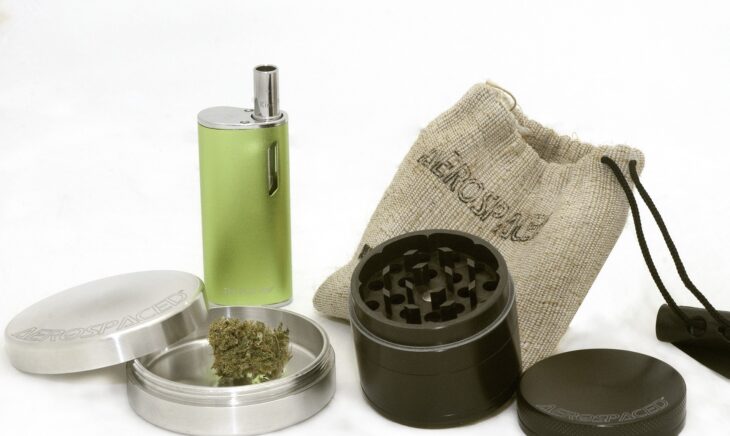While cannabis for medical use has been legal in Thailand since 2018, the real boom in Thailand for cannabis commerce was when it was decriminalized on 9 June 2022. Specifically, Thailand’s Food and Drug Administration removed cannabis (and hemp) from the list of Category 5 narcotics. However, while cannabis and hemp plants are legal, cannabis and hemp extracts with a THC content greater than 0.2% (note that hemp extracts can exceed this THC level) by weight, and any products containing them, are still categorized as narcotics.
Since then, there have been other regulations put into place regarding the growing, selling, buying, and consuming of various cannabis and hemp products. This includes categorizing the flower (or bud) or the cannabis plant as a controlled herb, meaning that licenses are necessary for research and commercial ventures related to that part of the plant. However, there has yet to be an overarching law passed regarding cannabis and hemp, and with elections looming at the time of writing, it may be a while before the government drafts a law that can be enacted.
Entrepreneurs across Thailand and from around the world are not waiting and are investing, or are looking to invest, in the Kingdom’s burgeoning cannabis sector. But, as the regulatory environment is in flux, investors and business operators should pay close attention to what rules and requirements they must comply with and even do their best to anticipate upcoming legislation and regulations as much as possible to avoid future complications.
This article offers an overview of cannabis-related businesses, in an effort to clarify the current situation in Thailand. However, please note that there may be some specific scenarios not covered as this article is for informational purposes only and should not be construed as legal advice or assistance in any way.
Please note that the information presented here is current as of 25 April 2023.
Cannabis products for consumers
Although the Thai government continues to claim that the decriminalization in June 2022 was in furtherance of promoting medical marijuana use, there has been a surge in recreational cannabis consumption.
Smoking cannabis privately is legal, but it is prohibited in public, punishable by three months in jail or a 25,000 baht fine.
Smoking cannabis generally refers to the flower, as it is rare for people to smoke the other parts of the plant. These other parts (leaves, stems, seeds, etc.) can be consumed without restriction. However, obtaining and consuming oils and extracts containing more than 0.2% THC requires a prescription from a licensed medical professional.
With a recent rule requiring cannabis retailers to track their inventory, there have been discussions about requiring shops to record buyers’ identification information. Currently, it seems this would only apply to Thai citizens; however, it is unlikely that transactions will be tracked, at least for the time being.
Cannabis businesses in Thailand must be majority Thai-owned
For all intents and purposes, almost all cannabis businesses must have a majority Thai shareholding. Thai law essentially excludes all foreign companies as well as foreign majority companies incorporated in Thailand from producing, selling, importing, exporting, and processing cannabis (except for seeds). These restrictions are considered an effort to protect local businesses from an onslaught of foreign actors with better resources and access to more modern technology. Furthermore, many of the underlying activities (e.g., farming and selling food and beverages) are already restricted by Thailand’s Foreign Business Act.
The one exception, as mentioned above, is the importation and sale of seeds, but there are still licensing requirements to undertake such a business.
Growing cannabis
Technically, only Thai nationals can grow cannabis plants. There are currently no restrictions on how many plants an individual can cultivate. However, the government urges people to register their plants through the plookganja (“grow cannabis”) website or application for a license to grow. For businesses that want to farm their own cannabis, the entity currently cannot register, but a stakeholder can. Nevertheless, the form has a section to declare the purpose for growing cannabis, and there is a “commerce” option. Only Thai individuals can register.
Although it is not required now, it is highly recommended for any person or business planning on growing marijuana to register with this site, as it will most likely be mandatory under any new legislation enacted.
Selling cannabis
Products containing cannabis
To sell food, drink, or cosmetics containing cannabis extract, you must make sure that the product does not contain more than 0.2% THC. This also applies to the manufacture of such products.
You can use cannabis plant components, except for the flower, instead of extract. If you do use stems, leaves, etc., it is currently unclear if you must guarantee that the THC content is under the 0.2% threshold. The non-flower parts of a cannabis or hemp plant can contain more than 0.2% THC, and technically, cooking or processing these parts could be construed as “extraction”, which then becomes a problem if the THC limit is broken.
While businesses manufacturing or selling (wholesale / retail) the above-mentioned products do not require a cannabis-related license, there are other licenses and requirements that must be complied with, such as a food production license from the Thai FDA.
Cannabis flowers
Cannabis flowers, as a controlled herb, cannot be sold to:
- Students
- People under the age of 20
- Pregnant or breastfeeding women
Furthermore, cannabis flowers cannot be sold through online platforms or vending machines, and any advertisements for cannabis products are strictly prohibited. There are also prohibitions on selling cannabis in temples and places of worship, hostels, public parks, and amusement parks.
Cannabis flowers can only be sold at brick-and-mortar businesses, and such purchases cannot be consumed on the premises. For example, at a cannabis coffee shop, patrons can consume edibles (which must contain less than 0.2% THC), but they cannot smoke marijuana there as the coffee shop is considered a public space.
There are businesses investing in “private” smoking areas, but this could be problematic since they would have to be open-air spaces that would not disturb the public.
Businesses licensed to sell cannabis flower must also keep records that they must submit to the Ministry of Public Health, including such information as how much cannabis they have in inventory, where the cannabis came from, and their intended use.
Both wholesale and retail cannabis flower sales require a cannabis distribution license from the Thai FDA.
Importing cannabis
As mentioned earlier in this article, the only part of the cannabis plant that can be imported is the seed. This requires approval under Thailand’s Plant Propagation Act and Plant Quarantine Act.
Exporting cannabis
There is a cannabis export license available for cannabis flower from the Thai FDA. The criteria are strict and limited to medical marijuana. Furthermore, considering the legal landscape in other countries, even with cannabis being removed from Schedule IV of the UN’s Single Convention on Narcotic Drugs, exporting cannabis flowers may a complicated undertaking.
Exporting seeds, stems, and other derivative products (with less than 0.2% THC) will also require approvals from the Department of Agriculture and FDA.
Find out more about cannabis businesses in Thailand from GPS Legal
By some estimates, there are currently over 4,000 cannabis dispensaries in Thailand, but how many of them are in compliance with the current rules and regulations is hard to tell. This is a hot-button issue, and government authorities are cracking down. Regardless, many foreign investors and entrepreneurs still see Thailand’s emerging cannabis culture as a potential gold mine.
GPS Legal has assisted in establishing several cannabis-related ventures, from dispensaries to seed imports and sales. We have been closely monitoring the situation so that we can guide clients through the ever-changing regulatory landscape overseeing Thailand’s cannabis industry.
We would like to end this article with a word of caution. We want to emphasize again that almost all cannabis businesses in Thailand (except for the importation of seeds) are only open to Thai nationals and that nominee structures (where a foreigner pays a Thai national to act as a shareholder) are illegal in Thailand, although companies are not strictly scrutinized for such during registration. If you are a Thai national, have a Thai national as a partner, or plan on investing in an established Thai business and would like to learn more about cannabis businesses in Thailand, please contact GPS Legal to find out how we can assist you.




